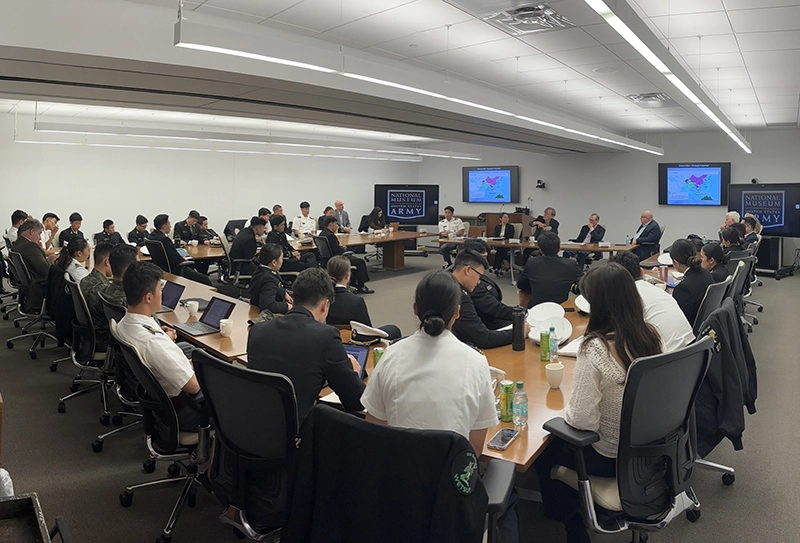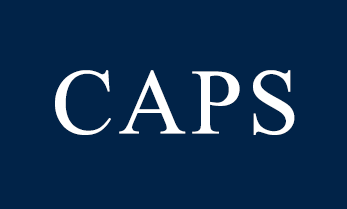On November 16, 2024, the Center for Asia Pacific Strategy (CAPS) convened its annual Global Future Leaders Initiative Cadet Forum at the National Museum of the United States Army. This prestigious event brought together over 30 cadets and midshipmen to engage with leading experts on critical issues shaping the Indo-Pacific security landscape, including U.S. Indo-Pacific Command (INDOPACOM) policy, China’s regional strategy, and the complex dynamics of the Korean Peninsula.
The first panel featured LTG Champoux, Senior Executive Vice President of Government Relations at Hanwha Defense USA; David Maxwell, Vice President of CAPS; Dr. George A. Hutchinson, Operational Energy Prototyping Lead at the Office of the Deputy Assistant Secretary of Defense for Energy Resilience & Optimization; and Hee-Eun Kim, President & CEO of CAPS, explored U.S. Indo-Pacific strategies. The discussion underscored the imperative of reinforcing the U.S. “Hub-and-Spoke” model, particularly through enhanced trilateral cooperation with Japan and South Korea. The panel concluded by advocating for the adoption of “strategic empathy” in U.S. foreign policy, emphasizing the importance of understanding the unique perspectives and challenges faced by regional partners to cultivate cooperation and promote peace within the Indo-Pacific.
The second panel delved into China’s strategic objectives in the region. Dr. Cole, retired U.S. Navy Captain; Dr. Watson, scholar and former Dean of Faculty & Academic Programs at the National War College; and Dave Menser, Research Staff Member at the Institute for Defense Analyses, analyzed China’s revisionist and revanchist tendencies, rooted in historical grievances and a desire to reclaim its perceived pre-colonial status. The panel identified the Chinese military’s primary concerns as regime survival, countering U.S. influence, and securing its borders, with the U.S., Japan, and India identified as key perceived threats. The panelists cautioned against “mirror-imaging,” urging U.S. policymakers to avoid projecting their own assumptions onto China’s motivations to prevent strategic miscalculations.
The final panel, comprised of LTG Champoux; Hyun Seung Lee, North Korean escapee and human rights advocate; Dr. Hutchinson; and David Maxwell, focused on the Korean Peninsula, addressing five critical dimensions: deterrence, potential regime collapse, human rights, asymmetric threats, and the challenges of reunification. The panel reached a consensus that reunification represents the most viable long-term solution to addressing North Korea’s egregious human rights abuses and nuclear proliferation. Panelists explored various potential pathways to reunification, including war, regime collapse, peaceful unification, and a less conventional “outlier scenario” involving internal pressure for regime change driven by external information campaigns, potentially triggering internal collapse.
The CAPS Global Future Leaders Initiative Cadet Forum 2024 provided a crucial platform for emerging leaders to engage with leading experts and gain invaluable insights into the evolving dynamics of Indo-Pacific security. The forum underscored the importance of cultivating strategic empathy and preparing for the complex interplay of traditional and unconventional security challenges that will define the region’s future.



